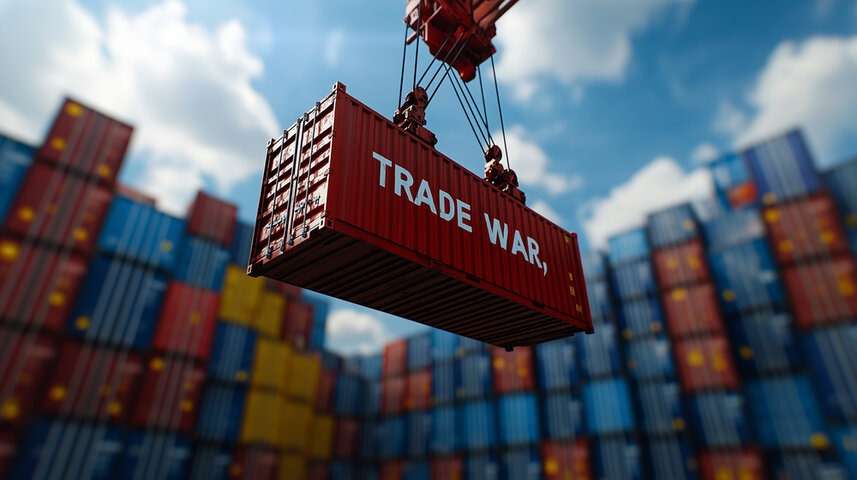Navigating Trade Barriers with Digital Manufacturing
In today’s global economy, trade barriers such as tariffs, import restrictions, and geopolitical tensions are becoming more prevalent. These trade barriers make it increasingly difficult for manufacturers to maintain efficient supply chains. As a result, businesses face disruptions in production timelines, rising operational costs, and challenges in overall business performance. Therefore, to remain competitive, companies must adopt innovative solutions to overcome these obstacles. One such solution is digital manufacturing, which enables businesses to localize production, reduce reliance on imports, and minimize the impact of trade barriers.
What Is Digital Manufacturing and How Does It Work?
It refers to the process of producing products or parts using digital data, mainly through advanced technologies like additive manufacturing. Unlike traditional manufacturing models that depend on centralized factories and international shipping, digital manufacturing allows companies to store product designs digitally. As a result, businesses can produce products locally when needed, rather than waiting for international shipments.
This shift from traditional to digital manufacturing brings several advantages. For instance, it offers enhanced production flexibility, cost savings, and greater operational efficiency. In other words, businesses can streamline their processes and reduce dependence on global trade.
The Impact of Trade Barriers on Traditional Supply Chains
Trade barriers, including tariffs, customs restrictions, and rising geopolitical tensions, have significant effects on traditional supply chains. Here’s how:
- Increased Operational Costs: Tariffs and taxes on imports naturally raise the cost of manufacturing goods.
- Production Delays: Customs procedures and border restrictions can extend lead times, resulting in delays in product availability.
- Unreliable Sourcing: Trade regulations often make it more difficult for businesses to rely on international suppliers, leading to inconsistent product sourcing.
As a result, these barriers disrupt supply chains and negatively affect the bottom line, making it more challenging for companies to stay competitive in a global market.
Why Digital Manufacturing is the Answer to Trade Barriers
Localized Production to Minimize Tariff Impact
One of the key benefits of digital manufacturing is that it allows businesses to produce parts closer to where they are needed. This, in turn, helps bypass many tariffs and import restrictions, leading to reduced costs and faster delivery times. Therefore, companies gain more control over production schedules, improving their overall efficiency.
On-Demand Production to Lower Inventory Costs
Additionally, digital manufacturing enables businesses to produce items on demand. This eliminates the need for large inventories, significantly reducing storage costs. As a result, companies can respond to market demands more quickly and avoid the financial strain of maintaining excess inventory. In other words, digital manufacturing offers businesses a more flexible and efficient production model.
Creating Resilient Supply Chains
Moreover, digital manufacturing helps businesses build more resilient supply chains. By reducing dependency on international suppliers, companies create networks that are more flexible and better able to adapt to changing global trade dynamics. This flexibility is especially crucial during times of political or economic uncertainty, as it allows businesses to minimize the impact of trade disruptions and geopolitical tensions.
How Replique Supports Your Business with Digital Manufacturing
At Replique, we offer an integrated digital manufacturing platform that helps businesses overcome trade barriers and optimize their supply chains. Here’s how our platform benefits companies:
- Localize Production: Store product designs digitally and produce parts locally as needed, reducing logistics and storage costs.
- Global Network: Tap into our worldwide network of trusted manufacturing partners for localized, tariff-free production.
- Expert Guidance: Receive expert advice on selecting the best materials and production methods, ensuring cost-effective and efficient manufacturing.
- Sustainability: Minimize waste and reduce your carbon footprint by producing parts closer to end-users, which also supports more sustainable business practices.
With Replique’s digital manufacturing solutions, businesses can reduce reliance on traditional, centralized manufacturing models, creating more agile and cost-effective supply chains.
Future-Proof Your Business with Digital Manufacturing
As trade barriers continue to evolve, businesses must adapt to new challenges. However, digital manufacturing offers a powerful way to future-proof your operations. By enabling on-demand, localized production, businesses can bypass the risks posed by global trade conflicts, reduce costs, and improve supply chain efficiency.
With Replique’s platform, companies can streamline their operations and remain resilient in the face of changing global dynamics. This adaptability ensures that businesses stay competitive and maintain flexibility, even during periods of uncertainty in international trade.
Contact Replique for Digital Manufacturing Solutions
Are you ready to optimize your supply chain and overcome trade barriers with digital manufacturing? Contact Replique today to discover how our platform can help you produce parts locally on demand, reduce costs, and improve your operational efficiency. Let us help you build a more resilient and cost-effective supply chain for your business.
In conclusion, by focusing on localized production, on-demand manufacturing, and building resilient supply chains, Replique’s digital manufacturing solutions help businesses effectively navigate trade barriers. This allows companies to stay competitive in today’s challenging global market, ensuring long-term success and efficiency.
Categories
- 3D printing industries (6)
- 3D Printing Materials (1)
- Basics (3)
- News (1)
- Point of View (10)
- Press (20)
- Press (20)
- Sustainability (3)
- Technology (6)
- Uncategorized (1)
- White Paper (1)



